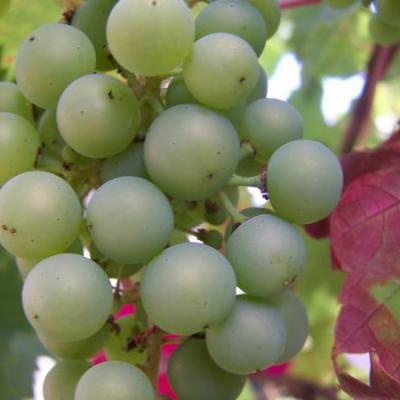Vinologist (Vinoloog)
Information on this skill...
A vinologist is a person who should be considered a wine lover and wine connoisseur. In addition, a vinologist can be regarded as a gourmet with regard to wine. The profession or hobby vinologist therefore means that someone is a specialist in the field of wine. As a vinologist, there are different types of courses and full-fledged training, which means that there are different levels as a vinologist. The profession of vinologist is only a protected title if a vinologist has completed a recognized training at the wine academy. In all other cases, the profession of vinologist has no protection or official title. A professional vinologist therefore has a protected title by following a heavy training, which is only accessible to experienced wine lovers, who also have the right prior education. A vinologist has more insight and knowledge regarding wine than ordinary wine drinkers. Think, for example, of being able to recognize different wine flavors, being able to recognize wine grapes, being able to recognize wine-growing regions and other specific characteristics with regard to wine. A vinologist course is ideal for professionals who are professionally involved in wine. Think, for example, of a sommelier, host or hostess within the hospitality industry. There are quite a lot of people who are wine lovers and want to delve further into their wine knowledge. A course to become a vinologist will take at least three weeks, in which theory and practice are combined. The vinologist course can help enormously for wine lovers, who may also have to deal with wines in their real work, such as in the hospitality industry. A course or training as a viticulturist can also be useful for professionals within the retail trade or wholesale trade.
A vinologist is therefore a qualified wine connoisseur who has a lot of wine knowledge. This knowledge does not only relate to the wine itself. A vinologist also has other relevant knowledge regarding wine. Think, for example, of grape varieties, wine countries, climate influences, soil types and vinification. Vinification refers to all operations required to turn pressed grapes (must) into wine. It is not the case that sommeliers can automatically be classified as viticulturists. A sommelier is a wine waiter, who specializes in giving advice regarding wine and wine pairings. A viticulturist does not give any further advice with regard to wine and wine pairings. This may be the case if a sommelier can be regarded as a viticulturist. At its core, a viticulturist has nothing to do with possible food combinations. Most vinologists who have extensive wine knowledge have this because they have professional similarities with wine. Think, for example, of restaurateurs, hoteliers or hosts within the hospitality industry. But hobbyists with a penchant for wine can also be wine connoisseurs.
GAINING WINE KNOWLEDGE
Anyone can build up wine knowledge by following the right training courses. The profession of vinologist will in most cases have no protection, because anyone can call himself a vinologist. This does not alter the fact that professional vinologists can have a protected title of the wine academy. Legally, the profession of vinologist has no protected status. A vinologist is in all cases a wine lover, who has a preference for wine. A vinologist will not only drink and judge wine, because a good vinologist will be happy to tell about the wine in question. Think of telling about the region where the wine comes from, the grape variety and about the year of the wine. A good vinologist can therefore usually also be regarded as an educational employee with regard to wine and viticulture. Working as a guide during excursions can also occur regularly as a viticulturist. In most cases, gaining wine knowledge relates more to passion than to following an education. Without the right motivation, it is actually not possible to become a good vinologist.
WHAT DOES A VINOLOGIST DO:
TRAINING AS A VINOLOGIST
As described earlier, the profession or hobby vinologist is not an ordinary profession. There are therefore no training opportunities through usual schools for it. However, there are plenty of course opportunities to become a vinologist. During the vinologist course, attention is paid to the following topics: Viticulture and vinification, Wines of Europe, Wines of the world, Legislation, Wine and its price, Health, Marketing and Organoleptic and analytical tasting. In order to be recognized as a vinologist, an official training and exam must be taken at the wine academy. There is also an Association of Vinologists Netherlands where more information can be found for interested parties. Accounting is also important as an entrepreneur.
COMPANIES WHERE A VINOLOGIST CAN WORK
A vinologist can work in different ways. Think, for example, of small and medium-sized businesses that have their own liquor store, or wine sellers who work within the wholesale trade. In addition, a viticulturist can work within the hospitality sector. It is not the case that all vinologists are professionally active. Vinologists can also simply be active as a viticulturist as a hobbyist. An important addition to this is that a viticulturist must have a lot of knowledge. Being active as a viticulturist as a hobby must therefore be seen as a relative.
SPECIAL MENTION BRANCH HOBBY
Competences, labour market perspective, career opportunities, employment conditions and salary as a viticulturist do not apply to the hobby sector, as we have included in all other branches. For more specific information about professions, please look at the professions. The hobby industry is included on Mijnzzp.nl because there are hobbies that can have common ground with work-related professions.
The content on this page has been automatically translated from the Dutch language. For this reason, texts and videos on this page may contain small errors.
Lesen Sie diese Informationen auf Vinologe auf Deutsch.
Lees deze informatie over Vinoloog in het Nederlands.
Mijnzzp.nl


